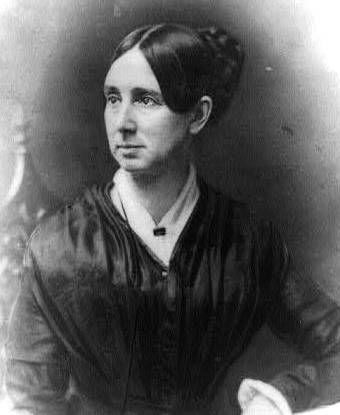 Portrait of Dorothea Dixhttps://www.nps.gov/people/dorothea-dix.htm?utm_source=person&utm_medium=website&utm_campaign=experience_more“Someone has to stand up and speak for the freedoms of the little guy” (“Christopher Monckton Quotes.”). Christopher Monckton perfectly depicts the actions Dix took to help those who were seen as impotent and insane in society. Dorothea Dix was an American reformer who traveled throughout America and abroad to serve as a voice for the mentally ill in hospitals, jails, and asylums (“Dorothea Lynde Dix.”). She was prompted to begin a journey of reform after a Sunday school trip to the East Cambridge Jail (Parry). There she witnessed the horrible, brutal conditions that the mentally ill had to face in their everyday lives. During the Civil War, she temporarily stopped her reforms for the mentally ill to serve as a nurse after being appointed as superintendent of the Nursing Corps (“Dix’s war.”). Dix was awarded the “Thanks of Congress Award” and financial awards for her efforts in the war (“Dix’s war.”). Although she has been praised for her many great accomplishments in helping both the mentally ill and the wounded, her strong mindset and her care for others was what truly defined her as a hero. Dorothea Dix demonstrated heroism through her power to overcome opposition and her acts of altruism towards the helpless individuals in society.
Portrait of Dorothea Dixhttps://www.nps.gov/people/dorothea-dix.htm?utm_source=person&utm_medium=website&utm_campaign=experience_more“Someone has to stand up and speak for the freedoms of the little guy” (“Christopher Monckton Quotes.”). Christopher Monckton perfectly depicts the actions Dix took to help those who were seen as impotent and insane in society. Dorothea Dix was an American reformer who traveled throughout America and abroad to serve as a voice for the mentally ill in hospitals, jails, and asylums (“Dorothea Lynde Dix.”). She was prompted to begin a journey of reform after a Sunday school trip to the East Cambridge Jail (Parry). There she witnessed the horrible, brutal conditions that the mentally ill had to face in their everyday lives. During the Civil War, she temporarily stopped her reforms for the mentally ill to serve as a nurse after being appointed as superintendent of the Nursing Corps (“Dix’s war.”). Dix was awarded the “Thanks of Congress Award” and financial awards for her efforts in the war (“Dix’s war.”). Although she has been praised for her many great accomplishments in helping both the mentally ill and the wounded, her strong mindset and her care for others was what truly defined her as a hero. Dorothea Dix demonstrated heroism through her power to overcome opposition and her acts of altruism towards the helpless individuals in society.
 Dorothea Dix's Memorialhttps://docsouth.unc.edu/highlights/dix.htmlDix’s ability to resist and conquer the obstructions in her life to focus on achieving her goals illustrated her indomitable spirit and determination. Dix was faced with rejection after requesting land for asylums from the government: "In 1848 Dix took her fight to Congress in an attempt to win appropriation of 12,500,000 acres of land, which would provide tax revenue for asylums. The bill finally passed both houses only to be vetoed by President Franklin Pierce. The discouraged reformer then traveled through England, Ireland, and Scotland, inspecting mental hospitals" (“Dorothea Lynde Dix.”). Instead of giving up after the veto, Dix got over her failures and focused on helping the mentally ill in other countries. Even though she lost her fight with the Congress, she did not see this as the end of her works. She continued working hard to improve the conditions for mentally ill people in America as well as other countries. She did not let the rejection prevent her from helping those in need of asylums. Dix, who wished to contribute to the war efforts, was unwanted because she was a female: “Dix recruited a large number of female nurses, and here she thoroughly trod on Army toes. Military hospitals were hostile to women, and only male nurses were employed. This did not deter Dix, whose well-organized army of female nurses eventually numbered in the thousands” (“Dix’s war.”). During the 1800’s, women were not highly respected; therefore they were not given a fair chance in work opportunities. Because men were the only ones wanted in military hospitals, Dix decided to find her own way of helping the wounded by recruiting an army of female nurses. She was determined because she did not allow discrimination to stop her from achieving her objective of aiding the wounded. Dix portrayed determination through her resilience to rejection and obstacles.
Dorothea Dix's Memorialhttps://docsouth.unc.edu/highlights/dix.htmlDix’s ability to resist and conquer the obstructions in her life to focus on achieving her goals illustrated her indomitable spirit and determination. Dix was faced with rejection after requesting land for asylums from the government: "In 1848 Dix took her fight to Congress in an attempt to win appropriation of 12,500,000 acres of land, which would provide tax revenue for asylums. The bill finally passed both houses only to be vetoed by President Franklin Pierce. The discouraged reformer then traveled through England, Ireland, and Scotland, inspecting mental hospitals" (“Dorothea Lynde Dix.”). Instead of giving up after the veto, Dix got over her failures and focused on helping the mentally ill in other countries. Even though she lost her fight with the Congress, she did not see this as the end of her works. She continued working hard to improve the conditions for mentally ill people in America as well as other countries. She did not let the rejection prevent her from helping those in need of asylums. Dix, who wished to contribute to the war efforts, was unwanted because she was a female: “Dix recruited a large number of female nurses, and here she thoroughly trod on Army toes. Military hospitals were hostile to women, and only male nurses were employed. This did not deter Dix, whose well-organized army of female nurses eventually numbered in the thousands” (“Dix’s war.”). During the 1800’s, women were not highly respected; therefore they were not given a fair chance in work opportunities. Because men were the only ones wanted in military hospitals, Dix decided to find her own way of helping the wounded by recruiting an army of female nurses. She was determined because she did not allow discrimination to stop her from achieving her objective of aiding the wounded. Dix portrayed determination through her resilience to rejection and obstacles.
Instead of showing care to only herself, Dix showed concern and took action for the wellbeing of others, which displayed how she was altruistic. Dix used the inheritance from her grandmother for reform and charity: “She returned to Boston in 1837, just after the death of her grandmother. The inheritance she received enabled her to support herself fully and devote her time to reform and charitable work” (Parry). Dix could have lavished herself using the money she received. Instead of using all of her inheritance to fulfill her wishes, she decided to spend it to help others. She put the needs of others before her own desires. Her ability to overcome her materialistic desires to improve the lives of others shows how she was selfless and altruistic. In a memorial to the Legislature of Massachusetts, Dix shared how the mentally ill were being treated: “I proceed, gentlemen, briefly to call your attention to the present state of insane persons confined within this Commonwealth, in cages, closets, cellars, stalls, pens! Chained, naked, beaten with rods, and lashed into obedience....” (Dix). In the 1840’s, women were not given fair opportunities and greatly wanted to improve their situations. Although Dix also faced the struggles of being female, she found the conditions of the mentally ill to be a bigger issue. Rather than feeling pity for herself, she showed compassion towards others. She recognized that other minorities were being treated much worse than women. She did not attempt to improve conditions of her own life, but instead dedicated her time towards the improvement of the mentally ill’s lives by bringing awareness to their struggles. Dix exemplified altruism through her ability to see past her own desires and struggles for the needs of others.
 Dorothea Dix's medallion at the Points of Light Monumenthttps://legacyofthedragondix.weebly.com/legacy.htmlDix’s motivation to continue her works despite obstacles, and devotion to aid those in need of comfort is what makes her an inspiration to others. She did not allow for anything to deter her from her passion to help others. Her works, which has helped and inspired many, was fueled by her determination and her altruistic character. Dorothea Dix had a large impact on the increase of mental hospitals in the 1800s: “When her campaign began in 1841, there were only 13 mental hospitals in America. By her death, there were 123. Dorothea Dix had played a direct role in the founding of at least 32 and an indirect role in all the others” (“Dorothea Dix.”). She is an inspiration because she shows how one person can create a huge impact. Dix founded about 32 mental hospitals; however she has helped inspire others to contribute more to the causes. By standing up for others and what she believed in, she was able to improve the lives of the mentally ill in America and all around the world. She inspires me to lend a hand to those in need of support, and illustrates how I could achieve whatever I desire through hard work and dedication. She informs others about how everybody, including those who are considered insignificant in society, deserves a voice and support. All of her accomplishments and praises do not define her as a hero; however they can still be seen as result of her heroism. Her heroic traits were able to shine in the spotlight: all because of her decision to stand up for the little guys and their freedoms.
Dorothea Dix's medallion at the Points of Light Monumenthttps://legacyofthedragondix.weebly.com/legacy.htmlDix’s motivation to continue her works despite obstacles, and devotion to aid those in need of comfort is what makes her an inspiration to others. She did not allow for anything to deter her from her passion to help others. Her works, which has helped and inspired many, was fueled by her determination and her altruistic character. Dorothea Dix had a large impact on the increase of mental hospitals in the 1800s: “When her campaign began in 1841, there were only 13 mental hospitals in America. By her death, there were 123. Dorothea Dix had played a direct role in the founding of at least 32 and an indirect role in all the others” (“Dorothea Dix.”). She is an inspiration because she shows how one person can create a huge impact. Dix founded about 32 mental hospitals; however she has helped inspire others to contribute more to the causes. By standing up for others and what she believed in, she was able to improve the lives of the mentally ill in America and all around the world. She inspires me to lend a hand to those in need of support, and illustrates how I could achieve whatever I desire through hard work and dedication. She informs others about how everybody, including those who are considered insignificant in society, deserves a voice and support. All of her accomplishments and praises do not define her as a hero; however they can still be seen as result of her heroism. Her heroic traits were able to shine in the spotlight: all because of her decision to stand up for the little guys and their freedoms.
Works Cited
"Christopher Monckton Quotes." BrainyQuote.com. BrainyMedia Inc, 2019. 7 January 2019. https://www.brainyquote.com/quotes/christopher_monckton_438072
Dix, Dorothea. "Memorial to the Legislature of Massachusetts." Civil Rights in America, Primary Source Media, 1999. American Journey. Student Resources In Context, https://link.galegroup.com/apps/doc/EJ2163000114/SUIC?u=powa9245&sid=SUIC&xid=5e5c451f. Accessed 10 Dec. 2018.
"Dix's war to save the wounded in hospitals." Washington Times [Washington, DC], 19 Apr. 2003, p. B03. Biography In Context, https://link.galegroup.com/apps/doc/A100387976/BIC?u=powa9245&sid=BIC&xid=9c31fd44. Accessed 11 Dec. 2018.
"Dorothea Dix." DISCovering Biography, Gale, 2003. Student Resources In Context, https://link.galegroup.com/apps/doc/EJ2102100504/SUIC?u=powa9245&sid=SUIC&xid=78b7f070. Accessed 12 Dec. 2018.
"Dorothea Lynde Dix." Encyclopedia of World Biography, Gale, 1998. Biography In Context, https://link.galegroup.com/apps/doc/K1631001831/BIC?u=powa9245&sid=BIC&xid=48f3120d. Accessed 5 Dec. 2018.
Parry, Manon S. “Dorothea Dix (1802-1887)”. US National Library of Medicine National Institutes of Health, Vol. 96, No. 4, American Journal of Public Health, April 2006, https://www.ncbi.nlm.nih.gov/pmc/articles/PMC1470530/.
Page created on 1/9/2019 10:15:19 PM
Last edited 1/10/2019 5:51:38 AM
